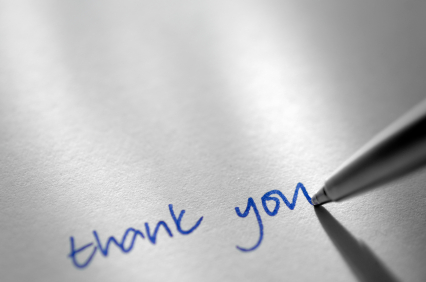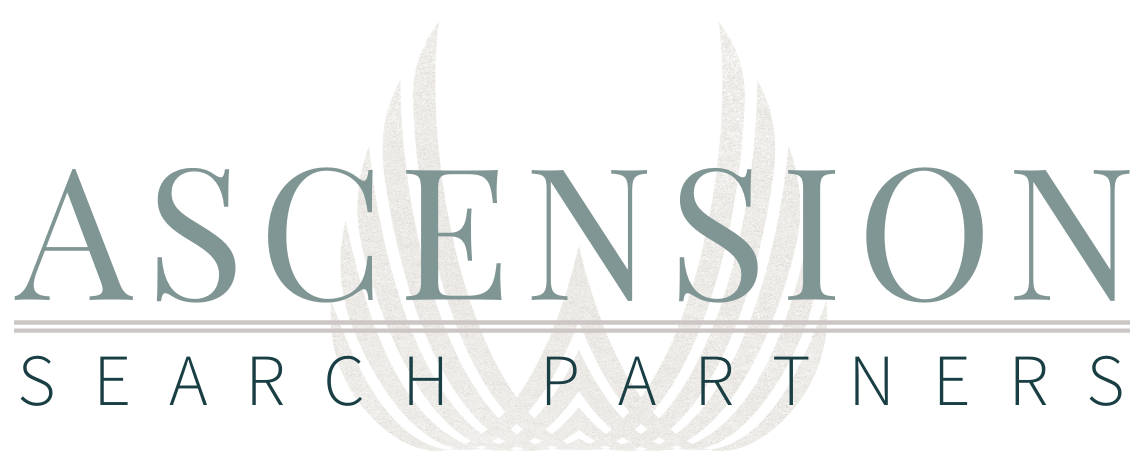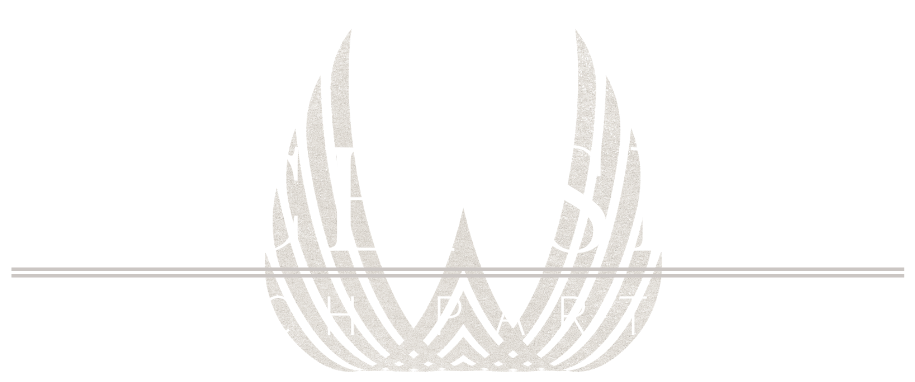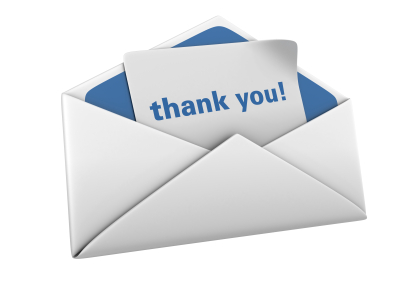
So, what is the most appropriate way to say thank you? This can depend on a number of factors.
- Consider your timeline: if you know the interviewer has multiple candidates lined up and is looking to make a quick decision, an email is obviously the best way to get your message across quickly and efficiently. Conversely, if you know this will be a slow process, a few extra days to get a handwritten note in the hand of your interviewer is not going to be of critical importance.
- Consider your audience: what would be more appropriate for the interviewer? What is their style and what would they prefer? Hopefully you have gotten a sense of this from them directly during the interview, but this is also where your Recruitment Consultant can be an excellent resource. They will likely have dealt with this client before so know them better, and can provide additional input and guidance.
- Consider your message: Do you have a lot to cover? I never advise using a thank you follow up to introduce a lot of new points that you have since thought about and forgot to mention during the interview; it should function more as a closing statement. That said, if there is a skill you have that you know is critical to the role and you did not have a chance to cover it in the interview, you may want to bring it up here. An email, in that way, allows more room to convey these points, rather than trying to cram extra words in a handwritten note.
- Consider your style: Does your handwriting look like chicken scratch?? Would that put the interviewer off, rather than endear them to you? Better to stick with an email. Even if you will not be writing by hand in the course of your job, impressions and presentation are very important so better to not take that risk.
To summarize, thank you follow-ups are very important. Whether you choose a handwritten note or a well-crafted email, expressing gratitude should always be part of your interview ritual.
For more information please contact:
Lucy Lorenzo, CPC – Founding Partner
llorenzo@ascensionsearchpartners.com
214-501-1042
About Ascension Search Partners
Boasting more than 50 years of combined recruitment experience, we know what it takes to deliver the right talent. Ascension Search Partners was founded on the belief that talent acquisition is a true business partnership, and we believe search partners should offer extensive market and functional knowledge, with an in-depth, consultative approach.
Recent Posts
Contact Our Team

So, what is the most appropriate way to say thank you? This can depend on a number of factors.
- Consider your timeline: if you know the interviewer has multiple candidates lined up and is looking to make a quick decision, an email is obviously the best way to get your message across quickly and efficiently. Conversely, if you know this will be a slow process, a few extra days to get a handwritten note in the hand of your interviewer is not going to be of critical importance.
- Consider your audience: what would be more appropriate for the interviewer? What is their style and what would they prefer? Hopefully you have gotten a sense of this from them directly during the interview, but this is also where your Recruitment Consultant can be an excellent resource. They will likely have dealt with this client before so know them better, and can provide additional input and guidance.
- Consider your message: Do you have a lot to cover? I never advise using a thank you follow up to introduce a lot of new points that you have since thought about and forgot to mention during the interview; it should function more as a closing statement. That said, if there is a skill you have that you know is critical to the role and you did not have a chance to cover it in the interview, you may want to bring it up here. An email, in that way, allows more room to convey these points, rather than trying to cram extra words in a handwritten note.
- Consider your style: Does your handwriting look like chicken scratch?? Would that put the interviewer off, rather than endear them to you? Better to stick with an email. Even if you will not be writing by hand in the course of your job, impressions and presentation are very important so better to not take that risk.
To summarize, thank you follow-ups are very important. Whether you choose a handwritten note or a well-crafted email, expressing gratitude should always be part of your interview ritual.
For more information please contact
Lucy Lorenzo, CPC – Founding Partner llorenzo@ascensionsearchpartners.com
214-501-1042


